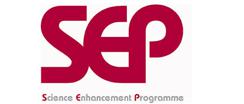- View more resources from this publisher
 Gatsby Science Enhancement Programme
Gatsby Science Enhancement Programme
Skill 3: Scientific Reading
Produced by Gatsby Science Enhancement Programme, the resources in this section help students to develop their skills in reading for information.
Text with lots of information and subject-specific language demotivates and slows down the reader. This can lead to poor comprehension and a reluctance to engage with further scientific texts. The first part of this skill area introduces selective reading strategies, such as skimming and scanning, which promote more effective study and learning for students. The second part considers reading strategies to help develop understanding and recall.
There are trainer development materials associated with the delivery of learning activities in this skill area. They can be found at: LSS Skill Area 3 Training.
Resources
Filter
Skill 3.7 Reading and Sharing
Produced by Gatsby Science Enhancement Programme, this activity requires students to actively read an article, produce a summary and review their learning with a partner.
The activity emphasises the effectiveness of teaching a concept to someone else as a learning tool. It helps students to practice...
Skill 3.8 Scientific Foldover Game
Produced by Gatsby Science Enhancement Programme, this activity is based on the foldover game, where one person draws a head, folds the paper, the next draws a body and so on. The variation is that this exercise is based around the amount remembered after reading a paper from a scientific journal. On each paper...
Skill 3.9 Using Visuals: Krypton Factor Style
This activity, produced by Gatsby Science Enhancement Programme, encourages students to see the value of visual representations of ideas. Students take turns to describe a visual to see if their partner can recreate the same visual using the description alone. The activity helps the students to: * communicate...
Skill 3.5 Making Sense of Text: In Your Own Way
This activity, produced by Gatsby Science Enhancement Programme, challenges students to read a piece of text and then represent it in the way that best helps them to remember it. In doing so, students are encouraged to: * locate the themes and keywords within an article * summarise the key pieces of information *...





